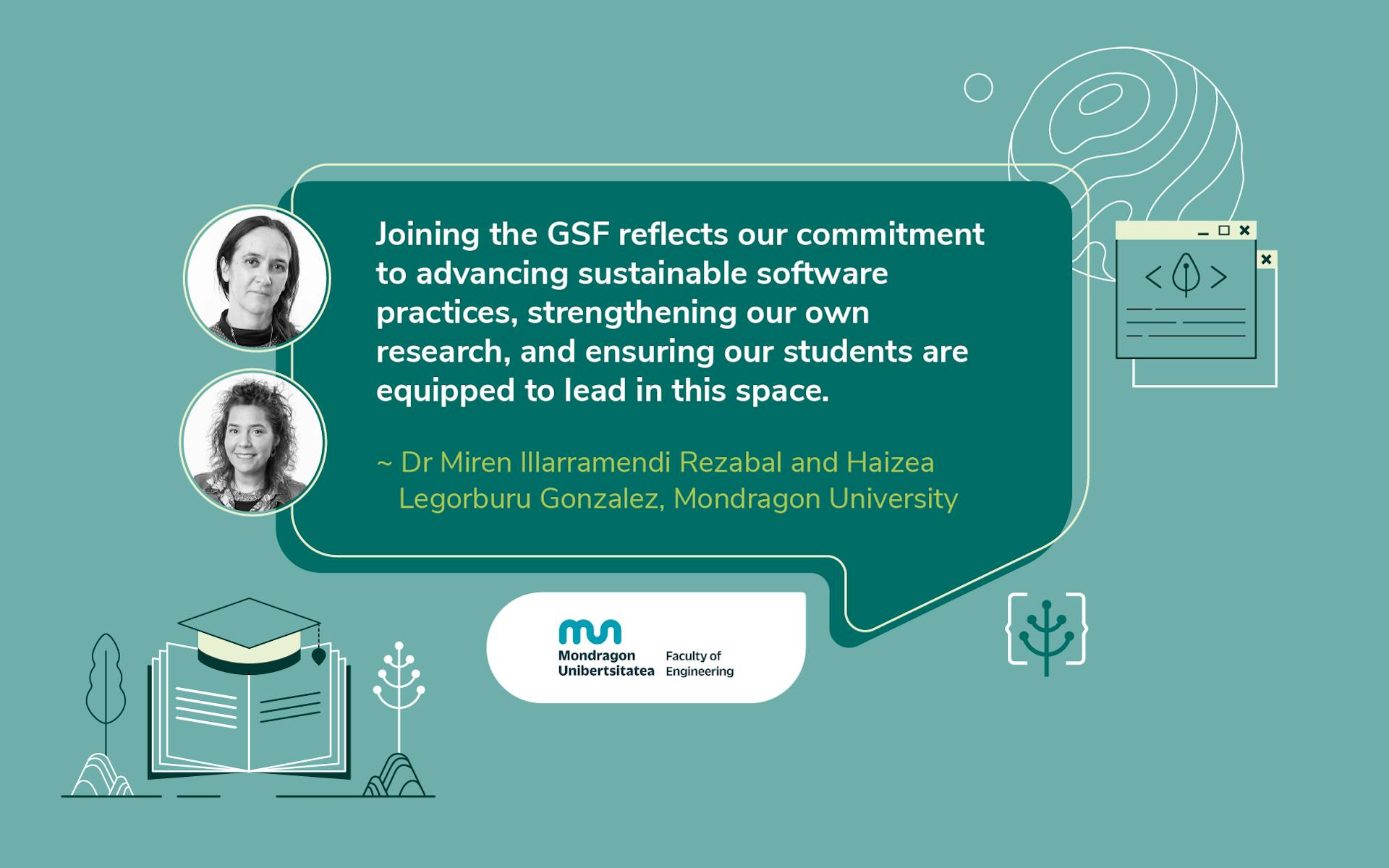Miren coordinates the software and systems engineering research group at Mondragon University, which focuses on building more sustainable, maintainable systems.
As the communications lead, Haizea provides strategic support for the university’s sustainability initiatives.
Can you tell us about Mondragon University?
Mondragon Unibertsitatea is a non-profit cooperative university belonging to the MONDRAGON Corporation, the leading Basque business group and the tenth largest in Spain, employing nearly 70,000 people. We’re deeply committed to innovation and transformation, both at the individual and societal levels.
Our mission is to contribute to society’s transition toward sustainability by integrating scientific, technical, and cooperative values into everything we do.
This commitment is firm within our engineering faculty, where we embed sustainable manufacturing technologies, lifecycle analysis, and environmental awareness into our programs. Through project-based learning, students engage in real-world sustainability initiatives, preparing them to address sustainability challenges in the professional environment.
How does sustainability manifest at your organization?
Sustainability is at the core of our activities, both in research and education. On the digital front, software sustainability has been a growing consideration. We maintain a wide variety of software systems across departments and are expanding our research focus in this area, with the Software and Systems Engineering research group leading our efforts.
In addition, the Circular Economy and Industrial Sustainability (CEIS) research group is integrating AI and software into life cycle assessments (LCAs), ensuring digital tools align with environmental goals.
Our computer science students are taught sustainable design principles, maintainability, and long-term system efficiency, which are all crucial skills for environmentally responsible development in academia and industry.
Why did you join the GSF?
We joined the Green Software Foundation because we recognize the critical role that software plays in global sustainability. As software becomes integral to virtually all domains, from industrial processes to AI, it’s essential that it be designed with longevity, efficiency, and environmental impact in mind.
Joining the foundation reflects our commitment to advancing sustainable software practices, strengthening our own research, and ensuring our students are equipped to lead in this space. It also connects us to a global network of like-minded institutions, allowing us to collaborate and exchange knowledge to address pressing environmental challenges.
Are there any other sustainability initiatives that you can share?
We have several initiatives focused on environmental impact and circularity. For instance:
In 2024, we launched the Hirekin Sustainable Industrial Innovation and Enterprise Centre, a collaborative hub focused on prototyping solutions for decarbonization, digitalization, and sustainability in industrial sectors.
Our campuses have implemented measures aimed at becoming zero-emission, including efforts around renewable energy, waste reduction, responsible purchasing, and sustainable transportation.
Recently, we opened a new university building that is heated by residual heat from a smelting company located next to the university as part of an innovative project.
We promote a culture of sustainability through initiatives like car-sharing and awareness campaigns that engage students and staff.
How do you hope to contribute to and benefit from the GSF?
We aim to contribute research insights from both our Software and Systems Engineering and Circular Economy groups. Our current projects include measuring the carbon footprint of AI workloads across diverse infrastructures and identifying design patterns for more sustainable systems.
Led by our experts, we bring a cross-disciplinary approach that links technical performance with environmental responsibility. We’re also eager to share the practical outcomes of our educational programs and real-world industrial collaborations.
In return, we hope to benefit from the collective expertise, shared frameworks, and global partnerships within the GSF, which will help enhance our methodologies and amplify the societal impact of our work.
This article is licenced under Creative Commons (CC BY 4.0)
